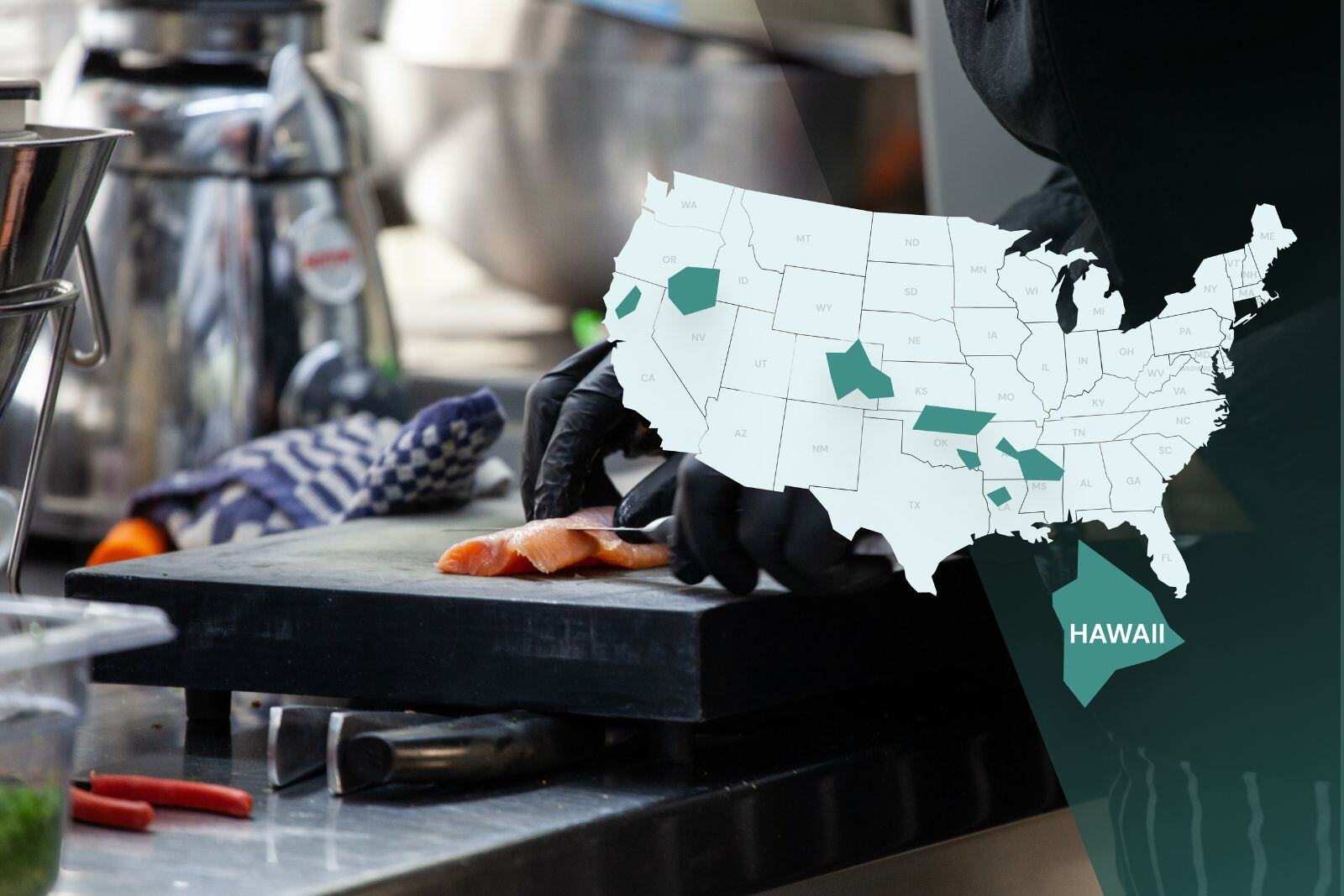Kalua pig, poke, loco moco, and shaved ice may be menu staples in the Aloha State, but the inviting nature of Hawaii’s food scene starts with food safety. There’s nothing welcoming about a foodborne illness outbreak!
You may wonder what training or certification you need for a job in the food industry or how to keep your establishment compliant with the Hawaii State Department of Health’s requirements.
Read on to learn about Hawaii’s food safety training and certification requirements. In this article, we’ll answer:
What version of the FDA Food Code does Hawaii use?
Does Hawaii require food handler training?
Does Hawaii require allergen awareness training?
Does Hawaii require food manager certification?
What version of the FDA Food Code does Hawaii use?
The Food and Drug Administration (FDA) Food Code provides food safety recommendations for the United States. However, individual states, counties, and cities choose which guidelines to adopt.
The FDA updates the code every two years with input from various stakeholders, including members of industry, regulatory, academia, consumer, and professional organizations. As a result, it evolves alongside our understanding of food safety science. The most current edition was released in 2022.
The Food Safety Branch of the Hawaii State Department of Health has adopted the 2013 FDA Food Code.1,2 The 2013 FDA Food Code recommends that at least one person in charge pass an exam to become a certified food protection manager (CFPM).
Among their many responsibilities, the CFPM must educate their staff on safe food handling practices, be able to identify major food allergens, and know the symptoms associated with an allergic reaction.
Read on to see how Hawaii chooses to adopt these recommendations.
Does Hawaii require food handler training?
No, food handlers are not required to take food safety training or earn a food handlers card.
However, an online food handler training may be helpful if you’re new to the food industry and looking to boost your knowledge (and your resume).
Does Hawaii require allergen awareness training?
No, formal food allergen awareness training is not required in Hawaii.
However, an establishment’s person in charge must ensure that their team is properly trained in food allergen awareness.
Does Hawaii require food manager certification?
Technically, no. Managers do not need to take an accredited certification exam.
However, a person in charge who has completed “food safety training” must be present during all hours of operation. These persons in charge must also ensure their staff is properly trained in food safety and allergen awareness.
This “food safety training” requirement can be met by completing training through the Department of Health’s Food Safety Education program or an ANSI National Accreditation Board (ANAB)-accredited food handler or food manager training program.3
Once you complete your training and earn your certificate, it is valid for three years.
Establishments deemed low-risk may be exempt from the food safety training requirement.
The takeaway
In Hawaii, the person in charge of a food establishment is responsible for food safety–and training and encouraging their staff to adhere to food safety best practices. This approach means that the persons in charge must set the tone at an establishment and help foster a positive and proactive food safety culture.
If it’s time for you to renew your training or you need to teach your staff about food safety, look no further than Trust20’s ANAB-accredited products. At the end of the day, the success of your business and Hawaii’s food scene relies on food safety–are you taking that responsibility seriously?
Sources:
-
FDA: 2013 Food Code
-
Hawaii Department of Health: Administrative Rules Chapters 11-50
-
Hawaii Department of Health: Food Safety Education





.png)

.png)
